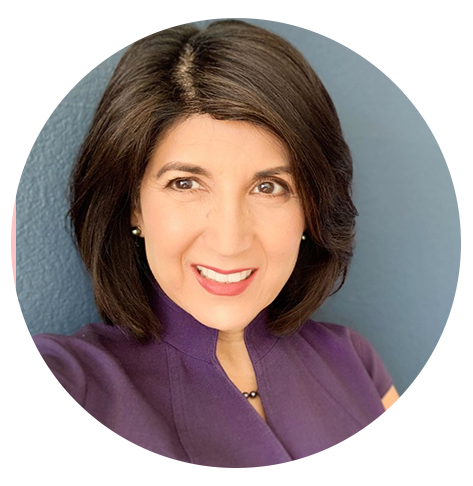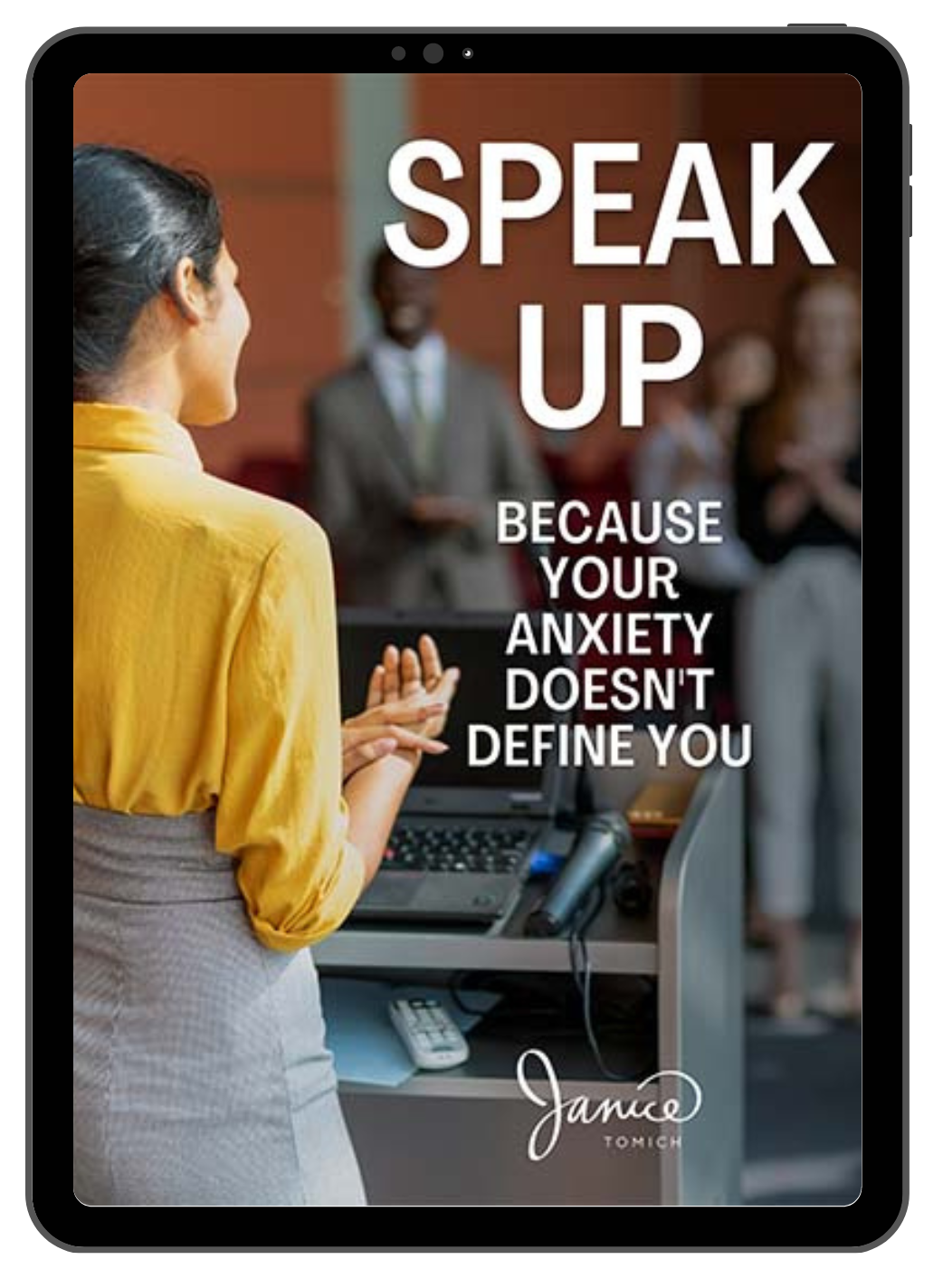I got a shock when I returned to university. I was in my early 50’s and had naively thought that lecture hall dynamics would have changed since the decades before when I had sat in a classroom.
They hadn’t.
Taking into consideration the ratio of men to women, men held much more power in that cohort. There was one man for every ten women. The power dominance was a rude awakening.
I’ve worked in male dominated fields for most of my career. Usually in autonomous roles where I ran my own ship and managed small teams where I built strong relationships and collaborative teams. I felt heard and respected.
During the last decade working in the field of communication—as a public speaking coach and executive communication consultant—I’ve learned that women’s voices often aren’t heard…I had been one of the lucky ones during my career.
Even though our cohort was predominantly female, male voices dominated most conversations similar to the conversation had by Sheryl Sandberg and Adam Grant in this Times Magazine article.
Men in my cohort led more project teams and won more arguments (got their way). If you had asked the men if this was true, they would disagree. If you had asked the women the same question they would disagree with the men.
The men were blind to their dominance – they were the victims of unconscious bias. The women weren’t – they were used to not being heard or taken seriously but needless to say it frustrated them based on the behind the scenes complaining.
Here we are in 2021 and the progress towards gender equality and equality has been painfully slow .
The issue of male executives dominating conversations and getting the plum projects/jobs hasn’t progressed other than increased awareness and a new lexicon that defines mansplaining (patronizing), manturrupting (interrupting while a woman is speaking), and bropropriating (taking credit for a woman’s idea).
Am I still shocked? No. I hear the same complaints from my female executive clients and don’t often hear (sometimes I do – but rarely) the same from my male clients. Adding to my experience, research shows that even in the revered Supreme Court in the USA, women are interrupted at twice the rate as their male counterparts.
Related Reading: Executive Presence for Women
Table of Contents
What holds women back from speaking up at meetings?
Women tend to be collaborators. They are often keen listeners who take the good of the whole into consideration rather than shining the light on themselves. Before you send me an email please know I’m generalizing. There are instances where my statements are not true. There are many men who are enlightened leaders.
Sometimes women don’t speak up because they’re weary of having to over-explain and prove their point.
Women see speaking up as futile because they’re not listened to or better said, a man’s POV will be listened to before a woman’s. This is a common theme with many of my woman clients. When women are talking, men will talk over them as though they are invisible.
A female colleague who has two male partners shared with me she often feels steamrolled by them and the sting of gender stereotypes. She knows they see her as the nurturer in the partnership. Adding to the frustration her male colleagues would green light an initiatives she disagreed with.
More often than not she was right – the project would fail, taking a toll on their business. She was frustrated by not being heard, her inability to persuade them, and the effect it had on her confidence in her communication abilities.
Even more egregious is having ideas or a project’s success stolen and appropriated by a thief. Who would have the chutzpah to do this?
It’s an issue I often hear from my female clients. They offer a new initiative or idea at a meeting without much uptake and then five minutes later a male colleague will bring forward the same idea and presto, it’s got legs. If you are a man reading this (if you’ve gotten this far) you’ll likely be thinking I’m delusional. This is because you don’t behave like this or don’t see it, however this scenario happens often.
Specific Strategies For Women To Speak And Be Heard At Meetings
System Culture Disruption
Cultural change is difficult. There are times when people don’t want to change – they see nothing wrong with their approach. They don’t realize (and sometimes don’t care) that someone is being affected by their approach or behaviour.
However, when we’re affecting others negatively and need to hear when we are. These are tough conversations that need to be had.
Change takes time.
It begins with awareness, which means speaking up about the biases and blindspots.
Often when women speak up at meetings and are critical of what’s being discussed they will be ignored or not thought of as leadership material. Research shows that women are in a double bind situation, however research shows that taking a positive tact helps them to be heard.
Techniques such as these are there to be leveraged because breaking down the barriers caused by embedded behaviour will take time.
Create A Meeting Code Of Conduct

When my son was in grade school he attended an inquiry-based program. At parent meetings we met in a circle passing a stick from one to the next. The holder of the stick had the floor. No interruptions were allowed.
Questions were welcomed when the stick holder had finished talking. I remember thinking it a bit ridiculous. What I came to learn was it worked.
The same strategy works in business meeting settings (without the stick). A meeting code of conduct needs to include a no interruption rule.
Or if the rule is forgotten…
Statements To Stop Interrupters
When you’re interrupted during a meeting use disrupters like these to take your power back:
- I’m curious about your response/idea. I’ll finish my point and then you can continue.
- I’m not finished talking (Kamala Harris used this brilliantly during the 2020 VP debates).
- What I’m saying is important…let me finish and then it would be great to hear your POV.
- If you’re feeling cheeky or have the latitude: “I’m sorry…Did the middle of my sentence interrupt the beginning of yours?”
Using one of these statements is usually effective at stopping interrupters and having an ally or two in the room that uses them works even better.
I know it’s hard to have that difficult conversation, pitch that podcast, or choose just the right words to make your presentation come to life.
What Specific Challenges Do Virtual Meetings Pose To Women?
Psychological safety is created through connection. It’s how we build trust. Meeting virtually impedes the number of social interactions you would have in a day, which erodes trust and causes women to find it challenging to speak up in an online environment.
The virtual environment has exacerbated the safety problem. Of the female business leaders who responded to a recent survey from Catalyst, nearly half said women face difficulty in speaking up in virtual meetings. And one in five women reported feeling overlooked or ignored during video meetings.
How Can Women Overcome The Challenges Of Virtual Meetings?
Speaking up when you hear gender bias such as, “she is abrasive or talks too much” needs to be outed and stopped.
It’s the responsibility of leaders and managers to ensure that all their colleagues feel safe to speak up, however they won’t know about a woman’s hesitancy to speak up unless they are told.
For change to happen anyone that is witness to, or experiences bias, needs to let their leaders know. I know it’s a tall order.
The words are easy.
The execution isn’t.
It takes bravery and confidence to speak up and for some/many it is a big risk to take.
What Challenges Do Women Who Are Non-Native Speakers Face?
How can they be overcome?
Many of my clients are non-native English speakers – English is their second or third language. A common trait amongst them is they feel their English skills are lacking and strive for perfection, which gets them stuck/not progressing.
My perspective is non-native English speakers do not need to speak English perfectly. Even native speakers often don’t (I am often in awe of non-native speaker’s knowledge of grammatical rules). As long as the communication is understandable, it’s enough because stripping away everyone’s accent would have us all sounding the same, which would have us all sounding like bots.
We would like to believe that as a culture we’ve come to a better place than we have – that women are heard and their ideas respected. However, my observation and the research shows we haven’t.
It will take challenging the status quo by speaking up by creating awareness, and then by being persistent and insisting that embedded bias is put to rest…once and for all.
Do you want to be heard, listened to, and remembered at meetings? I can help you with that. Here’s the link to my calendar to set up a time to see if we might work well together.


